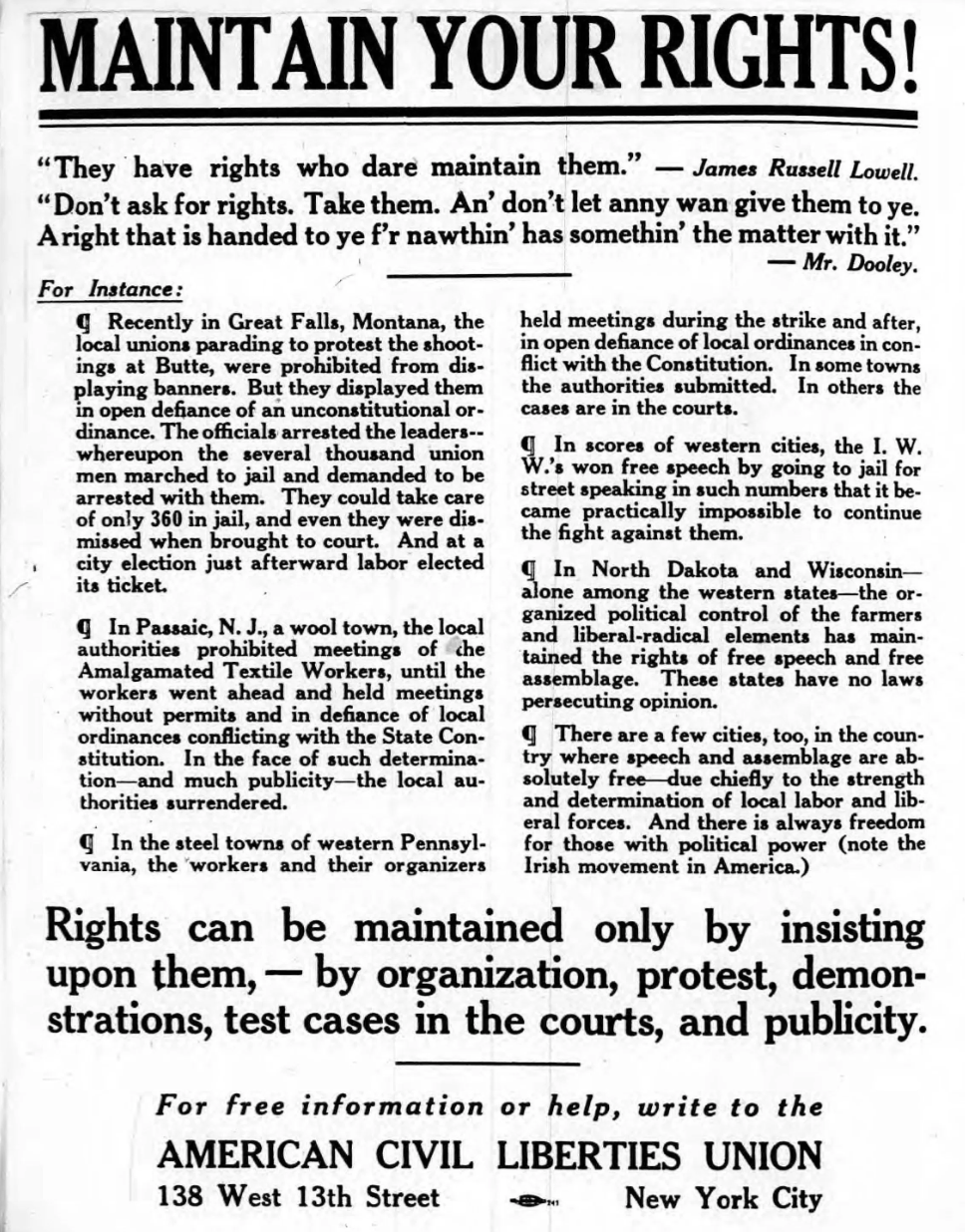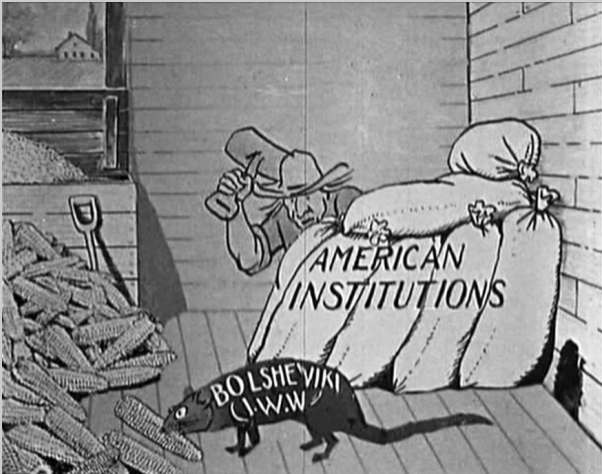|
By Melissa Walsh Following an event for a young political candidate, I commented to a news colleague, “How about these millennials? Impressive.” “Yeah, our generation really dropped the ball,” she responded. She’s an older gen-Xer like me, born close to that arbitrary Baby Boomer cutoff. Will this generation “undragon” us, I wondered, peeling away the dragon scales covering our nation’s founding enlightenment aims of civil liberties and justice? Was a major tear, ripping into America’s heart of power, the 2018 March for Our Lives movement, this generation of youth’s response to the killing of 17 students at the hands of a gunman at Marjory Stoneman Douglas High School in Parkland, Fla.? In 2019, did teen activist Greta Thunberg remove a layer of scales that were apathetic to the threat of climate change? Will we remove national scales of indifference to catastrophes abroad while quarantined by the 2020 Coronavirus landing in our neighborhoods? The notion of being undragoned was a metaphor employed by C.S. Lewis in The Voyage of the Dawn Treader, from the The Chronicles of Narnia. The story’s principle character is a greedy, lazy boy named Eustace, who lands in Narnia. Seeking to avoid the joyful, unselfish Narnian community and its work, Eustace sneaks off to an old dragon’s den for repose. When he falls asleep “on a dragon’s hoard with greedy, dragonish thoughts in his heart, he has become a dragon himself.” Dragons are selfish monsters that feed off the flesh of other dragons, animals and humans. When Eustace finds he’s a dragon, at first he’s pleased with new power to enact revenge against those he dislikes. But soon Eustace experiences the loneliness of being a monster. A lion sees Eustace crying and summons him to a well. The lion tells him to undress and get into the water. Wearing no clothing, Eustace attempts to remove the ugly dragon scales covering him. Multiple times, he peels away a layer of scales, only to reveal another deeper layer. Finally, the lion says, “Let me undress you.” The lion tears away the layers with his claws. The first tear is the most painful, ripping right into Eustace’s heart. When the scales are removed, Eustace climbs into the water. It hurts, but he is undragoned and sees his true identify as a boy. Lewis’ story is about personal, spiritual reform. The transition from self-love to loving others is the process an individual undergoes in realizing his or her best self, Lewis believed. He called undragoning the “radical surgery” of allowing virtue to free us into our true selves; it is painful, necessitating risk, vulnerability and faith in goodness. The virtue for undragoning America into its best self is civil reform, articulated in our Constitution and Bill of Rights. Events cause us to examine the first two amendments in the Bill of Rights. We see high school students applying the First Amendment to bring clarity of how the Second Amendment ought to be interpreted. We see those interpreting the right to “a well-regulated militia” and “to keep and bear arms” as the right of civilians to purchase weapons designed for combat. We see some with this view attacking speech of the students. We see political actors accusing the media of politicizing the Coronavirus pandemic with so-called scare tactics as reporters share verifiable data on the spread of the virus. We see fearful consumers hoarding toilet paper, sanitizer, cleaning wipes, bottled water, canned goods, and Coca Cola. Only those with disposable income can afford this hoarding. Meanwhile, those living paycheck to paycheck face empty shelves. We are dragoned. Our nation’s founders would urge us to allow civic virtue to peel away the layers of America’s self-aggrandizement-at-all-costs dragoning. They would call on a reawakening of the civil liberties on which this nation was built — what made America great. Achieving community of harmonious peace, they might add, requires more than flatly following stipulations written into and amended to our constitution; it requires good acts and just policies, trumping any individual’s or group’s right to trample on the common good of protecting us from ourselves and to feed the dysfunction in our nation leading to murders of young people at Columbine High School, Virginian Tech, Sandy Hook Elementary School, Stoneman Douglas High School and on our city streets. And these days, sadly, voices of moral courage (and common sense) must check the greedy, who would prefer a robust economy over protecting the most vulnerable to succumbing to the Coronavirus pandemic. As citizens in community, let’s examine how we treat our children and teens. How about our elderly? Do we blame the poor for the crises they face? What about the sick without health insurance? Do we really believe in rehabilitation for the imprisoned? Why do we allow unequal “justice” for the wealthy and the poor? For those applying our First Amendment right of freely practicing a faith, isn’t there room for a Golden Rule-like force in politics? How about giving to Caesar what is Caesar’s and to God what is God’s? Or what about not pursuing dishonest gain, but being eager to serve? The lyric in “Talk Talk” by Perfect Circle cries out: “You’re waiting on miracles. We’re bleeding out. Thoughts and prayers, adorable, like cake in a crisis. We’re bleeding out. While you deliberate, bodies accumulate.” In his book “Generous Justice,” theologian Tim Keller said human community is only strong when individuals weave and reweave themselves into it, strengthening it — not only with sharing, understanding, mercy and love — but our souls, our unique ideas, experiences, talents. This is how shalom — or harmonious peace — is achieved. The individual knows his or her true north for discovering good purpose and weaves that good into society, engaging with others in their good purpose. Good purpose is not “safe,” but it is right and will make America civil again. Let’s undragon ourselves as individuals in community, liberating the soul of American politics from the bondage of pride, fear, greed, hate, and complacency. © 2020 Melissa Walsh
0 Comments
 Click the image above for Fenn Rosenthal's "Dinosaurs in Love" on YouTube. Animation by Hannah Jacobs, Katy Wang, Anna Ginsburg. Click the image above for Fenn Rosenthal's "Dinosaurs in Love" on YouTube. Animation by Hannah Jacobs, Katy Wang, Anna Ginsburg.
By Melissa Walsh
Four-year old Fenn Rosenthal conceived the 2020 smash single “Dinosaurs in Love.” The song went viral weeks ago after Fenn's dad, her piano accompanist, released her performance on Twitter. Fenn's vocal delivery is adorable and her song-writing meaningful. In an NPR interview, Fenn’s dad, explained how the lyrics express Fenn’s processing of love and loss following the death of her grandfather. I picked up on something more abstract about love's truth from Fenn's song — that love’s presence (and reward) is peace and its absence disharmony. I recalled how philosopher Jean Varnier, who died last May, describes true love in his book Finding Peace. "Peace is the fruit of love,” Varnier writes, “a love that is also justice. But to grow in love requires work — hard work. And it can bring pain because it implies loss — loss of the certitudes, comforts, and hurts that shelter and define us.” The triteness in the way we celebrate Valentine’s Day today generally misses this truth. For many, it’s a have-to-buy-a-card holiday; for many others, it’s a litmus test of the health of a romantic relationship. Though conflicting legends abound about who St. Valentine was, we know that the Roman festival of lovers, Lupercalia, was renamed St. Valentine’s Day by Pope Gelasius I in the late 5th century. Since the 14th century, St. Valentine’s Day has celebrated romantic love. The first Valentine’s Day greetings cards were produced during the late-18th century, according to Encyclopedia Brittanica. The namesake of this so-called “Hallmark holiday” was likely a church martyr. The kind of love he lived out might have been what C.S. Lewis describes in his book The Four Loves as “Divine Gift-love,” or unconditional love in action. This is the type of love the Greeks categorize as Agape. The word communicates the sacrificial and most vulnerable form of love. The other three words for love in the Greek lexicon are Storge - familial love; Philia, friend love; Eros, romantic love. Lewis believed that Agape is a reflection of God’s love, essentially a reflection of who God is — Love revealed, Love in motion. Lewis argued that human love usually and naturally demands reciprocity, falling far short of Divine Gift-love, which living in a free-will cosmos, makes no such demand. The unconditional love a parent has for a child is the best way for the finite human mind to make sense of this Divine Gift-love, or Agape perfected. With unconditional love, we are not guaranteed love returned to us. We are vulnerable. Lewis warns, “There is no safe (love) investment.” “Love anything, and your heart will certainly be wrung and possibly broken,” he writes. “If you want to make sure of keeping it intact, you must give your heart to no one, not even to an animal. Wrap it carefully around hobbies and little luxuries; avoid entanglements; lock it up safe in the casket or coffin of your selfishness.” In that casket or coffin, Lewis explains, where the heart is safely locked away in a dark, motionless place, love dies. In other words, safe love is immobile and terminal. Vulnerable love is free and eternal.
America’s First Amendment guardians in 1920
What I loved then and now about The United States is exactly this — the healthy pluralism of such encounters as mine on the campus of WSU, the right to have these conversations openly, the rights of leftists, and all of us, to gather and hand out literature. The First Amendment protects these rights. And our First Amendment watchdog is the ACLU, the organization born of the National Civil Liberties Bureau (NCLB), which was organized in 1917 to defend Great War (World War I) protestors and conscientious objectors. Founding members rebranded the mission in 1920 in response to the Palmer raids, viewing the activities of the DoJ as countering founding principles of the United States and in direct violation of the US Constitution, specifically the First Amendment of the Bill of Rights. The ACLU’s founding members, per its first meeting minutes January 19, 1920, included Roger Baldwin, Crystal Eastman, Helen Keller, Walter Nelles, Morris Ernst, Albert DeSilver, Arthur Garfield Hays, Jane Addams, Felix Frankfurter, Elizabeth Gurley Flynn, and Rose Schneidman. A hundred years later, the ACLU’s work has benefitted us all across the political spectrum. I can’t help but believe that if it weren’t for the ACLU, the Wayne States leftists I encountered 30 years ago would not have been permitted to discuss their views with me openly. Chances are I might have been persecuted for having studied and traveled in communist countries. Events in the United States — in Detroit — a hundred years ago illustrate how injustice strikes communities without the safeguarding of our First Amendment rights 
Governor Whitmer signing Executive Order No. 2019-10. (Behind Gov. Whitmer, l to r): D.J. Hilson, Muskegon County Prosecutor and President, Prosecuting Attorneys Association of Michigan; Stephan Currie, Executive Director, Michigan Association of Counties; State Rep. Lee Chatfield, Speaker of the House; Lt. Gov. Garlin Gilchrist II; Chief Justice Bridget McCormack; and Attorney General Dana Nessel.
By Melissa Walsh
While covering city beats with the Grosse Pointe News, I learned how vulnerable many can become to arrest and incarceration, especially those with low income. For instance, many of the police reports I read as part of my reporting detailed arrests of drivers pulled over after their license plate had been scanned by a public safety officer while driving along Lake Shore Drive. I recall the report of a young mother being pulled over for expired auto insurance. She had not been speeding. She hadn’t run a red light or made an illegal turn. The officer had simply discovered by running her plate that her insurance coverage had expired just days earlier. The officer arrested her. She had her two toddler-aged children in the car and told the officer she was on her way to drop them off at day care before heading to her job in Grosse Pointe. The officer allowed her to call her husband. When he arrived, he was arrested for the same offense — driving with expired auto insurance. A relative picked up the kids at the police station while the two were in custody. Of course, a law enforcement officer who discovers the infraction and releases the offender is potentially liable if they were to cause an accident following the release. I get that. Yet the couple I mentioned above did not demonstrate being a threat to society. And yet, for missing a premium payment, they were facing the financial quicksand of court fines and fees, in addition to missing work and the trauma of their children witnessing their arrest. I read about many arrests like this one, which, from the perspective of common sense, seem unreasonable. Is jail being used to protect society? Or are the lives of too many arrestees upset with job loss and financial hardship caused by a justice system that counters a smart approach to justice? The problem of the accelerated rates of arrest and incarceration over the past few decades, especially among low-income populations, caught the scrutiny of the ACLU, which launched its national Campaign for Smart Justice in 2018. With volunteers investigating the arrest and incarceration systems and statistics in each of the nation’s 50 states, the ACLU aims to examine the issues and promote criminal justice reform. In early 2019, Michigan Governor Gretchen Whitmer issued Executive Order 2019-10, which created the Michigan Joint Task Force on Jail and Pretrial Incarceration, which went to work from April to November 2019 to investigate Michigan's justice system and determine its failures and best practices, including alternatives to plunging an individual into a whirlwind of court fines and fees (ie. tether and drug-test fees) and probation and incarceration that only the wealthy can avoid. Their findings were released on January 14, 2020.
Preparing for Prohibition
Late 1919, local authorities and residents were gearing up for the Volstead Act to go into effect January 1, 2020. Though the prohibition of alcohol for consumption had gone into effect in Michigan in May 1917, Detroiters enjoyed a supply from neighboring Ohio. With the Volstead Act drying up all U.S. states, Detroit’s bootleggers turned to a supply chain from Canada. And many of Detroit's doctors had been writing prescriptions for whiskey, which would be filled in Windsor pharmacies just across the Detroit River. The Canadian government had announced on December 10, 1919 that it would lift its war-time prohibition on alcohol (and horse-racing) effective January 16, 2020 and granted amnesty to offenders who were criminalized while the act had been in effect. The manufacturing of liquor would be permitted for shipment from one province to the other. This restricted the sale of intoxicants, but opened up the means, per export permit, for Detroit's neighbors in Windsor to have liquor delivered to their homes for “private consumption.” We know from history that bootleggers, like the Purple Gang, took advantage of this policy to illegally transport Canadian whiskey from Windsor over the Detroit River and Lake St. Clair into Detroit, the Downriver communities and St. Clair Shores. So in 1919, while bootlegging opportunists like the Purple Gang were setting up logistics for importing bonafide Canadian whiskey, other less-sophisticated operators were selling low-grade moonshine. On December 27, 78 deaths were reported in four states (Michigan was not among them) within 48 hours from drinking “fake rum,” which was actually wood alcohol with brown coloring to pass as whiskey. Though Detroiters were spared this tragedy — still enjoying ample, though costly and illegal (but legal from a pharmacy), supply of genuine whiskey -- the move to crack down on alcohol distribution was ramping up by state and federal law enforcement. This led to a series of raids. It was difficult for Detroiters to discern from legitimate law enforcement agents from thieves. For example, the Christmas Eve edition of the Detroit Free Press reported that men posing as state food and drug enforcers seized 8 gallons of “Christmas cheer” from a Detroit man’s cellar. |
Categories
All
Like what you've read? Become a supporter.
Thank you.
Archives
June 2023
|








 RSS Feed
RSS Feed
